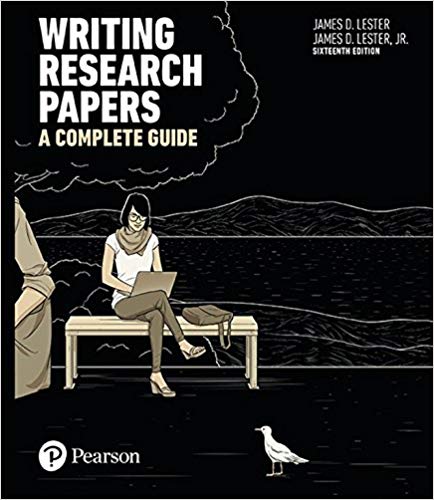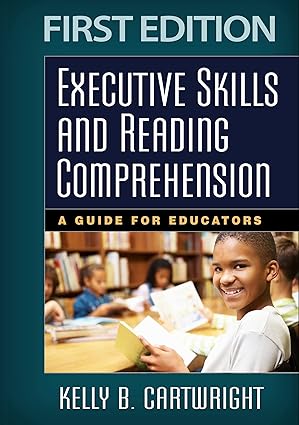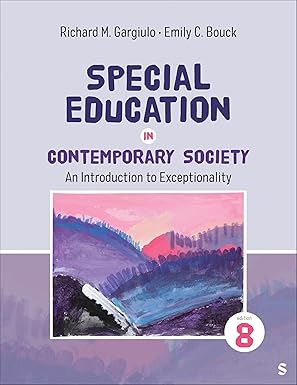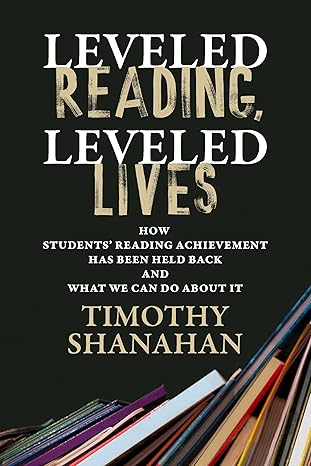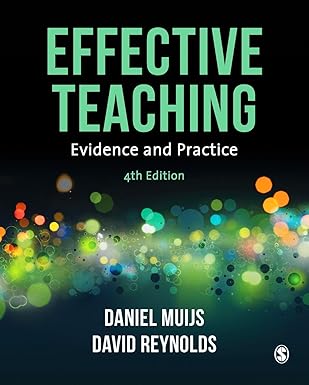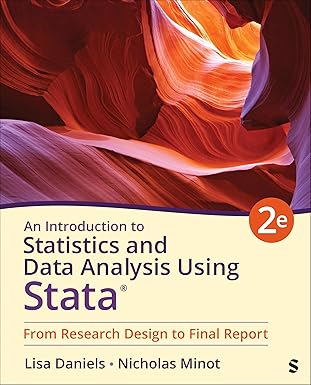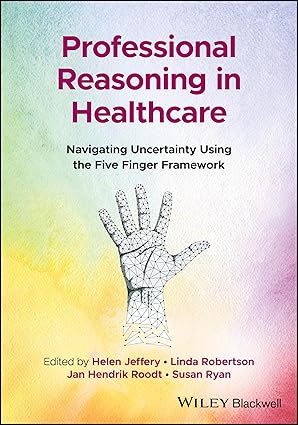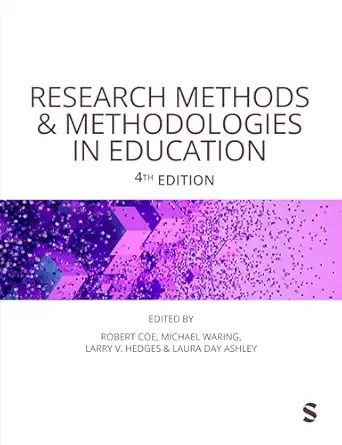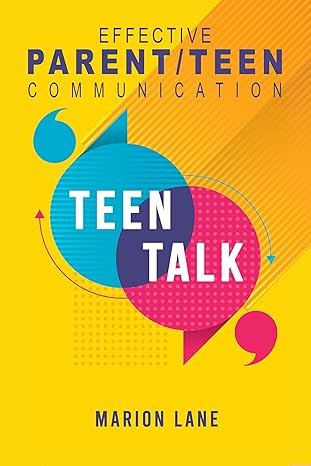For courses in Research Writing.
Celebrating 50 years of delivering current, detailed guidance on academic research and writing
The definitive research paper guide, Writing Research Papers: A Complete Guide combines a traditional but practical approach to the research process with the latest information on electronic research and presentation. Written by the original author’s son, this text remains the foremost handbook for current, detailed guidance about academic research, writing, and documentation.
Over the last two decades, the world of academic research has changed dramatically. Most research is now done online, which has not only put an almost unimaginable wealth of new sources at our fingertips, but has also brought challenges in evaluating source credibility and usefulness. Marking the 50th anniversary of Writing Research Papers: A Complete Guide , the 16th Edition confronts these new challenges and offers clear, detailed guidance to assist researchers as they struggle to keep pace with online research, electronic publishing, and new documentation formats.
Writing Research Papers: A Complete Guide , 16th Edition is also available via Revel™, an interactive learning environment that enables students to read, practice, and study in one continuous experience. Learn more.
چکیده فارسی
برای دوره های تحقیق نویسی.
تجلیل از 50 سال ارائه راهنمای دقیق و دقیق در زمینه تحقیق و نگارش دانشگاهی
راهنمای مقاله پژوهشی قطعی، نوشتن مقالات پژوهشی: راهنمای کامل ترکیبی از رویکرد سنتی اما عملی برای فرآیند تحقیق با آخرین اطلاعات در مورد تحقیق و ارائه الکترونیکی است. این متن که توسط پسر نویسنده اصلی نوشته شده است، مهمترین کتاب راهنما برای راهنماییهای دقیق و جاری درباره تحقیقات آکادمیک، نگارش و مستندات است.
در طول دو دهه گذشته، دنیای تحقیقات دانشگاهی به طرز چشمگیری تغییر کرده است. اکثر تحقیقات اکنون به صورت آنلاین انجام می شود، که نه تنها ثروت تقریبا غیرقابل تصوری از منابع جدید را در دسترس ما قرار داده است، بلکه چالش هایی را در ارزیابی اعتبار و سودمندی منبع ایجاد کرده است. به مناسبت پنجاهمین سالگرد نوشتن مقالات پژوهشی: راهنمای کامل ، نسخه شانزدهم با این چالشهای جدید مقابله میکند و راهنماییهای واضح و دقیق برای کمک به محققان ارائه میدهد. همانطور که آنها برای همگام شدن با تحقیقات آنلاین، انتشارات الکترونیکی و فرمت های اسناد جدید تلاش می کنند.
نوشتن مقالات پژوهشی: راهنمای کامل ، نسخه شانزدهم همچنین از طریق Revel™، یک تعاملی در دسترس است محیط یادگیری که دانش آموزان را قادر می سازد در یک تجربه مستمر بخوانند، تمرین کنند و مطالعه کنند. بیشتر بیاموزید.
ادامه ...
بستن ...
Ebook details:
عنوان: Writing Research Papers A Complete Guide (Spiral Version) (9780134519029)
نویسنده: James D. Lester (Deceased), James D. Lester Jr.
ناشر: PEAHE; 16th edition (February 18, 2017)
زبان: English
شابک: 0134519027, 978-0134519029
حجم: 23 Mb
فرمت: Epub
ادامه ...
بستن ...
Writing Research Papers A Complete Guide
Contents
Preface to the Instructor
What Is New in This Edition?
Key Features
Additional Resources for Instructors and Students
Chapter 1 Writing from Research
Goals and Outcomes
1a Why Do Research?
1b Learning the Conventions of Academic Writing
1c Understanding and Avoiding Plagiarism
1d Understanding a Research Assignment
Understanding the Terminology
Evaluation
Interpretation
Definition
Proposal
Causal Argument
Comparison, Including Analogy
Precedence
Implications
1e Establishing a Research Schedule
Chapter 2 Finding a Topic
Goals and Outcomes
2a Relating Your Personal Ideas to a Scholarly Problem
Connecting Personal Experience to Scholarly Topics
Speculating about Your Subject to Discover Ideas and to Focus on the Issues
Free Writing
Listing Keywords
Arranging Keywords into a Rough Outline
Clustering
Narrowing by Comparison
Asking Questions
2b Talking with Others to Refine the Topic
Personal Interviews and Discussions
Online Discussion Groups
2c Using Online Searches to Refine Your Topic
Using an Online Subject Directory
Using an Internet Keyword Search
2d Using the Library’s Electronic Databases to Find and Narrow a Topic
2e Using the Library’s Electronic Book Catalog to Find a Topic
2f Developing a Thesis Statement, Enthymeme, or Hypothesis
Thesis
Enthymeme
Hypothesis
2g Drafting a Research Proposal
The Short Proposal
The Long Proposal
Charting Your Research Project
Chapter 3 Organizing Ideas and Setting Goals
Goals and Outcomes
3a Using a Basic Order to Chart the Course of Your Work
3b Using Your Research Proposal to Direct Your Notetaking
3c Listing Key Terms and Phrases to Set Directions for Notetaking
3d Writing a Rough Outline
3e Using Questions to Identify Issues
3f Setting Goals by Using Organizational Patterns
3g Using Approaches across the Curriculum to Chart Your Ideas
3h Using Your Thesis to Chart the Direction of Your Research
Arrangement by Issues
Arrangement by Cause/Effect
Arrangement by Interpretation and Evaluation
Arrangement by Comparison
Charting Your Research Project
Chapter 4 Gathering Sources Online
Goals and Outcomes
4a Beginning an Online Search
4b Reading an Online Address
4c Using Keyword and Boolean Expressions
Subject Directory Search Engines
Robot-Driven Search Engines
Metasearch Engines
Specialized Search Engines
Educational Search Engines
Educational Search Engines Maintained by Libraries
4d Using RSS and Social Bookmarking
RSS Feeds
Web 2.0 and Social Bookmarking
4e Searching for Articles in Journals and Magazines
Online Journals
Online Magazines
4f Searching for Articles in Newspapers and Media Sources
4g Searching for Photographs and Other Visual Sources
4h Accessing E-books
4i Using LISTSERV, Blogs, and Chat
E-mail News Groups
Real-Time Chatting
4j Examining Library Holdings via Online Access
4k Finding an Internet Bibliography
Search Engine
4l Conducting Archival Research on the Internet
Go to the Library
Go to an Edited Search Engine
Go to a Metasearch Engine
Go to a LISTSERV or Usenet Group
Utilize Newspaper Archives
Charting Your Research Project
Chapter 5 Gathering Sources in the Library
Goals and Outcomes
5a Launching the Search
5b Developing a Working Bibliography
Works Cited Entry for a Book (MLA style)
Works Cited Entry for a Journal Article (MLA style)
Works Cited Entry for a Magazine Article (MLA style)
Works Cited Entry for an Article Found on an Academic Database (MLA Style)
Bibliography Entry for an Internet Article (MLA style)
5c Finding Books on Your Topic
Using Your Library’s Electronic Book Catalog
Search Results
Using the Library’s Bibliographies
Using the Trade Bibliographies
Using the Bibliographies in the Appendix
Examining the Bibliography at the End of a Book
Searching for Bibliographies at the End of Journal Articles
5d Finding Articles in Magazines and Journals
Searching the General Indexes to Periodicals
Finding Indexes by Topic in the Appendix
Readers’ Guide to Periodical Literature
Social Sciences Index
Humanities Index
Other Indexes
Searching for an Index to Abstracts
Searching for Abstracts of Dissertations
5e Searching for a Biography
Biography Index
Current Biography Yearbook
Contemporary Authors
Dictionary of Literary Biography
5f Searching for Articles in Newspaper Indexes
5g Searching Special Subject Directories
5h Searching for Government Documents
5i Searching for Essays within Books
Charting Your Research Project
Chapter 6 Conducting Field Research
Goals and Outcomes
6a Investigating Local Sources
Interviewing Knowledgeable People
Writing Letters and Corresponding by E-mail
Reading Personal Papers
Attending Lectures and Public Addresses
6b Investigating Government Documents
Local Government
State Government
Federal Government
6c Examining Audiovisual Materials, Television, and Radio
6d Conducting a Survey with a Questionnaire
6e Conducting Experiments, Tests, and Observation
Charting Your Research Project
Chapter 7 Understanding and Avoiding Plagiarism
Goals and Outcomes
7a Using Sources to Enhance Your Credibility
7b Placing Your Work in Its Proper Context
7c Understanding Copyright
7d Avoiding Plagiarism
Common Knowledge
Correctly Borrowing from a Source
7e Sharing Credit in Collaborative Projects
7f Honoring and Crediting Sources in Online Classrooms
7g Seeking Permission to Publish Material on Your Website
Charting Your Research Project
Chapter 8 Reading and Evaluating Sources
Goals and Outcomes
8a Finding Reliable Sources
8b Selecting a Mix of Primary and Secondary Sources
8c Evaluating Sources
Evaluating the Key Parts of an Article
Evaluating the Key Parts of a Book
Evaluating the Key Parts of an Internet Article
8d Outlining a Source
8e Summarizing a Source
8f Preparing an Annotated Bibliography
8g Preparing a Review of the Literature on a Topic
Charting Your Research Project
Chapter 9 Writing Effective Notes and Creating Outlines
Goals and Outcomes
9a Creating Effective Notes
Honoring the Conventions of Research Style
Using a Computer for Notetaking
9b Writing Personal Notes
9c Writing Direct Quotation Notes
Quoting Primary Sources
Quoting Secondary Sources
9d Writing Paraphrased Notes
9e Writing Summary Notes
9f Writing Précis Notes
Use the Précis to Review Briefly an Online Article
Use the Précis to Write an Annotated Bibliography
Use the Précis in a Plot Summary Note
Use the Précis as the Form for an Abstract
9g Writing Notes from Field Research
9h Creating Outlines Using Academic Models
A General All-Purpose Model
Model for Advancing Your Ideas and Theories
Model for the Analysis of Creative Works
Model for Argument and Persuasion Papers
Model for Analysis of History
Model for a Comparative Study
9i Writing a Formal Outline
Using Standard Outline Symbols
Writing a Formal Topic Outline
Writing a Formal Sentence Outline
Charting Your Research Project
Chapter 10 Drafting the Paper in an Academic Style
Goals and Outcomes
10a Focusing Your Argument
Maintaining a Focus on Objective Facts and Subjective Ideas
10b Refining the Thesis Statement
Using Questions to Focus the Thesis
Adjust or Change Your Thesis During Research if Necessary
10c Writing an Academic Title
10d Drafting the Paper from Your Research Journal, Notes, and Computer Files
Writing from Your Notes
Writing with Unity and Coherence
Writing in the Proper Tense
Using the Language of the Discipline
Writing in the Third Person
Writing with the Passive Voice in an Appropriate Manner
10e Using Visuals Effectively in a Research Essay
File Formats
10f Avoiding Sexist and Biased Language
Charting Your Research Project
Chapter 11 Blending Reference Material into Your Writing
Goals and Outcomes
11a Blending Reference Citations into Your Text
Making a General Reference without a Page Number
Beginning with the Author and Ending with a Page Number
Putting the Page Number Immediately after the Name
Putting the Name and Page Number at the End of Borrowed Material
11b Citing a Source When No Author Is Listed
Citing the Title of a Magazine Article
Citing the Title of a Report
Citing the Name of a Publisher or a Corporate Body
11c Citing Nonprint Sources That Have No Page Number
11d Citing Internet Sources
Identify the Source with Name or Title
Identify the Nature of the Information and Its Credibility
Omitting Page and Paragraph Numbers to Internet Citations
11e Citing Indirect Sources
11f Citing Frequent Page References to the Same Work
11g Citing Material from Textbooks and Large Anthologies
Works Cited Entry:
11h Adding Extra Information to In-Text Citations
One of Several Volumes
Two or More Works by the Same Writer
Several Authors in One Citation
Additional Information with the Page Number
11i Punctuating Citations Properly and Consistently
Commas and Periods
Semicolons and Colons
Question Marks and Exclamation Marks
Single Quotation Marks
11j Indenting Long Quotations
11k Citing Poetry
Quoting Three Lines of Poetry or Less
Quoting Four Lines of Poetry or More
Indenting Turnovers for Long Lines of Poetry
Retaining Internal Quotations within a Block
Providing Translations
11l Handling Quotations from a Play
11m Altering Initial Capitals in Quoted Matter
11n Omitting Quoted Matter with Ellipsis Points
Correctness
Omission within a Sentence
Omission at the End of a Sentence
Omission at the Beginning of a Sentence
Omission of Complete Sentences and Paragraphs
Omissions in Poetry
Avoid Excessive Use of Ellipsis Points
Ellipsis in the Original
11o Altering Quotations with Parentheses and Brackets
Parentheses
Brackets
Use Brackets to Clarify
Use Brackets to Establish Correct Grammar within an Abridged Quotation
Use Brackets to Note the Addition of Italics
Use Brackets to Substitute a Proper Name for a Pronoun
Use Brackets with Sic to Indicate Errors in the Original
Charting Your Research Project
Chapter 12 Writing the Introduction, Body, and Conclusion
Goals and Outcomes
12a Writing the Introduction of the Research Paper
Provide the Thesis Statement
Provide the Enthymeme
Provide a Hypothesis
Relate to the Well Known
Provide Background Information
Review the Literature
Review the History and Background of the Subject
Take Exception to Critical Views
Challenge an Assumption
Provide a Brief Summary
Define Key Terms
Supply Data, Statistics, and Special Evidence
12b Writing the Body of the Research Paper
Organize by Chronology
Compare or Contrast Issues, Critical Views, and Literary Characters
Develop Cause and Effect
Define Your Key Terminology
Explain a Process
Ask Questions and Provide Answers
Cite Evidence from the Source Materials
Use a Variety of Other Methods
12c Writing the Conclusion of the Research Paper
Restate the Thesis and Reach beyond It
Close with an Effective Quotation
Return the Focus of a Literary Study to the Author
Compare the Past to the Present
Offer a Directive or Solution
Discuss Test Results and Limitations
Charting Your Research Project
Chapter 13 Revising, Proofreading, and Formatting the Rough Draft
Goals and Outcomes
13a Conducting a Global Revision
Revising the Introduction
Revising the Body
Revising the Conclusion
Participating in Peer Review
13b Formatting the Paper to MLA Style
Title Page or Opening Page
Outline
Abstract
The Text of the Paper
Content Endnotes Page
Appendix
Works Cited
13c Editing before Typing or Printing the Final Manuscript
Using the Computer to Edit Your Text
13d Proofreading on the Screen and on the Printed Manuscript
Charting Your Research Project
13e Sample Papers in MLA Style
Short Literary Research Paper
Sample Research Paper
Chapter 14 Works Cited: MLA Style
Goals and Outcomes
14a Formatting the Works Cited Page
14b Key Elements of the Works Cited List
Bible
Blogs and Chat Rooms
Book Published before 1900
Book Title
Bulletin or Brochure
Cartoon
CD-ROM Resources and Recordings
Chapter or Portion of a Book
Classical Works
Collection, Component, or Part
Conference Proceedings
Corporation or Institution
Cross-References to Works in a Collection
Database
Dissertation
Drawings, Photocopies, and Transparencies
Edition
Editor, Translator, or Illustrator
Editorials, Notes, Letters, and Comments
E-mail
E-Mail Discussion Groups
Encyclopedia, Dictionary, or Reference Book
Essay or Thesis (Unpublished)
Film, Video, or DVD
Foreign Language Titles and References
Government Documents
Home Page for an Academic Site
Interview
Introduction, Preface, Foreword, or Afterword
Journal Article
Journal, with All Issues for a Year Paged Continuously
Lecture, Speech, or Public Address
Letter, Published
Magazine Article
Manuscript or Typescript
Map or Chart
Musical Composition
Newsletter
Newspaper Article
Novel
Page Numbers
Page Numbers, Nonconsecutive in an Article
Pamphlets, Programs, and Posters
Performance
Play
Poem
Publisher
Report
Reprinted Works
Republished Book
Review
Screenplay
Serialized Article or Lecture
Song
Sourcebook or Casebook
Special Issue
Table, Illustration, Graph, or Chart
Television or Radio Program
Title of the Article
Titles within Titles
Translator
University Article or Posting
Volumes
Volume, Issue, and Page Numbers for Journals
Chapter 15 Writing in APA Style
Goals and Outcomes
15a Writing Theory, Reporting Test Results, or Reviewing Literature
Theoretical Article
Report of an Empirical Study
Review Article
15b Writing in the Proper Tense for an APA Paper
15c Using In-Text Citations in APA Style
15d Preparing the List of References
Book
Part of a Book
Encyclopedia or Dictionary
Book with Corporate Author
Periodical
Journal
Article Retrieved from a Database
Magazine
Newspaper
Abstract
Abstract as the Cited Source
Abstract of an Unpublished Work
Review
Report
Nonprint Material
Computer Program
DVD, Film
Interviews, Letters, and Memos
Unpublished Raw Data from a Study, Untitled Work
Sources Accessed Online
Article from an Online Journal
Article with DOI Assigned
Article from a Printed Journal, Reproduced Online
Article from an Online-Only Newsletter
Document from a University Program or Department
Report from a University, Available on a Private Organization’s Website
Abstract
Article from a Printed Magazine, Reproduced Online
Article from an Online Magazine, No Author Listed
Article from an Online Newspaper
Blog (Web Log)
Bulletins
Government Document
Message Posted to an Online Discussion Group or Forum
Newsgroup, Message
Online Forum or Discussion Board Posting
Podcast
Symposium or Virtual Conference, Report
Wikis
Article from a Library Database
CD-ROM
Encyclopedia Article
Full-Text Article
15e Formatting an APA Paper
Theoretical Paper
Report of Empirical Research
Review Article
15f Writing the Abstract
15g Sample Paper in APA Style
Chapter 16 The Footnote System: CMS Style
Goals and Outcomes
16a Inserting a Superscript Numeral in Your Text
Writing Full or Abbreviated Notes
16b Formatting and Writing the Footnotes
16c Writing Footnotes for Electronic Sources
CD-ROM Source
Article from an Online Service
16d Writing Subsequent Footnote References
16e Writing Endnotes Rather Than Footnotes
Notes
16f Writing Content Footnotes or Content Endnotes
16g Using the Footnote System for Papers in the Humanities
Notes
16h Writing a Bibliography Page for a Paper That Uses Footnotes
16i Sample Research Paper in the CMS Style
Chapter 17 CSE Style for the Natural and Applied Sciences
Goals and Outcomes
17a Writing In-Text Citations Using the CSE Citation-Sequence System
17b Writing a References Page
17c Writing In-Text Citations with Name and Year
17d Using Name-Year with Bibliography Entries
Arranging the References List
17e Sample Paper Using the CSE Citation-Sequence System
Chapter 18 Creating Electronic and Multimedia Research Projects
Goals and Outcomes
18a Beginning the Digital Project
18b Building Digital Presentations
18c Research Project Websites
Creating a Single Web Page
Importing, Entering, and Modifying Text
Citing Your Sources in a Web-Based Research Paper
18d Using Graphics in Your Electronic Research Paper
Graphic File Formats
Creating Your Own Digital Graphics
18e Using Sound and Video in Your Electronic Research Paper
18f Preparing a Writing Portfolio
18g Presenting Research in Alternative Formats
Charting Your Research Project
Glossary Rules and Techniques for Preparing the Manuscript
Appendix Finding Reference Works for Your General Topic
Historic Issues of Events, People, and Artifacts
At the library, investigate these books and academic databases:
On the Internet, investigate these sites:
Scientific Issues in Physics, Astronomy, and Engineering
At the library, investigate these books and academic databases:
On the Internet, investigate these sites:
Issues of Health, Fitness, and Athletics
At the library, investigate these books and academic databases:
On the Internet, investigate these sites:
Social and Political Issues
At the library, investigate these books and academic databases:
On the Internet, investigate these sites:
Issues in the Arts, Literature, Music, and Language
At the library, investigate these books and academic databases:
On the Internet, investigate these sites:
Environmental Issues, Genetics, and the Earth Sciences
At the library, investigate these books and academic databases:
On the Internet, investigate these sites:
Issues in Communication and Information Technology
At the library, investigate these books and academic databases:
On the Internet, investigate these sites:
Issues in Religion, Philosophy, and Psychology
At the library, investigate these books and academic databases:
On the Internet, investigate these sites:
Issues in Business and Economics
At the library, investigate these books and academic databases:
On the Internet, investigate these sites:
Popular Culture, Current Events, and Modern Trends
At the library, investigate these books and academic databases:
On the Internet, investigate these sites:
Index
A
B
C
D
E
F
G
H
I
J
K
L
M
N
O
P
Q
R
S
T
U
V
W
Z
ادامه ...
بستن ...
